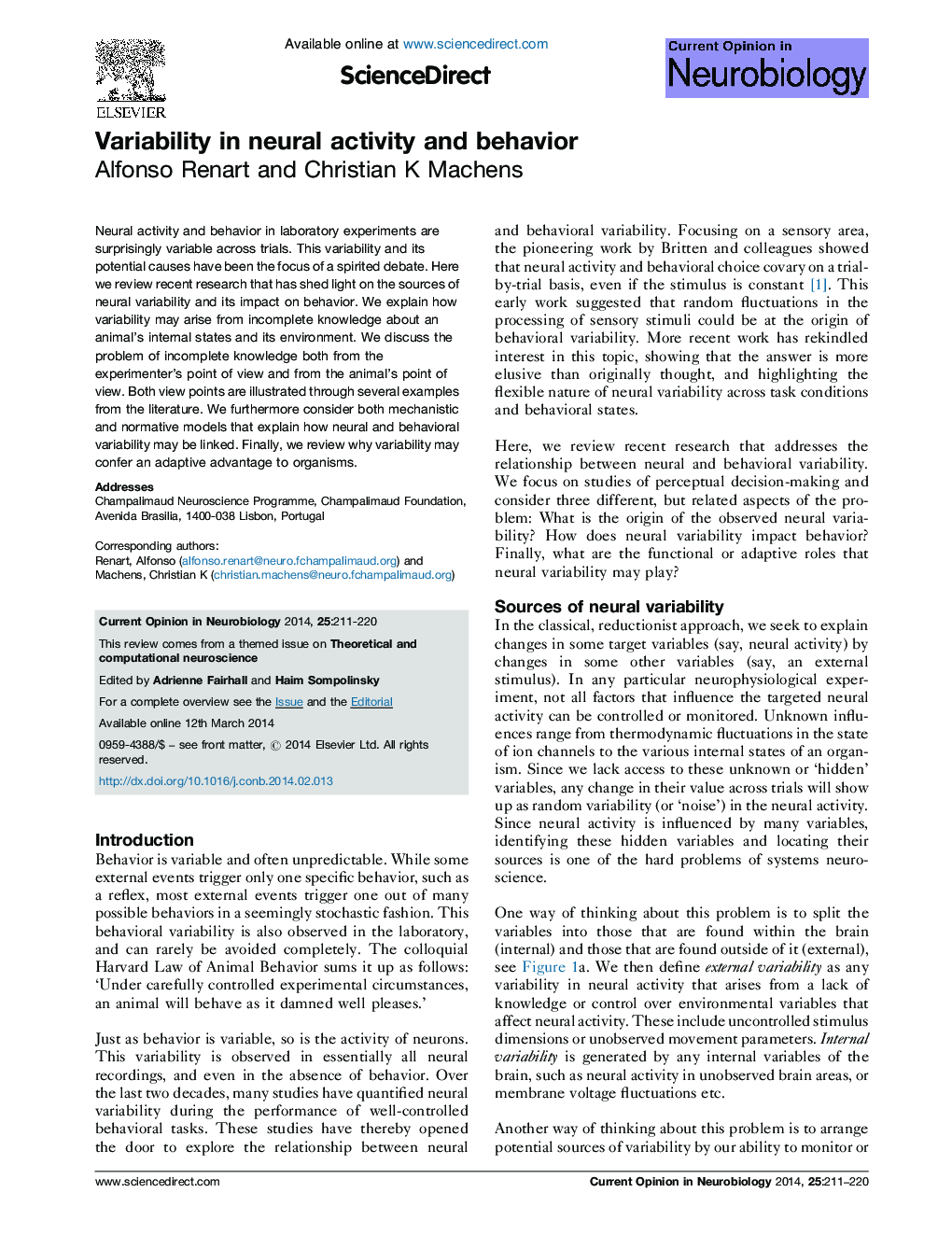| Article ID | Journal | Published Year | Pages | File Type |
|---|---|---|---|---|
| 6266579 | Current Opinion in Neurobiology | 2014 | 10 Pages |
â¢Insufficient knowledge by the experimenter results in neural variability.â¢What counts as variability for the experimenter and for the organism may be different.â¢The sources of variability can be targeted through modeling studies.â¢Variability may have an adaptive functional role.
Neural activity and behavior in laboratory experiments are surprisingly variable across trials. This variability and its potential causes have been the focus of a spirited debate. Here we review recent research that has shed light on the sources of neural variability and its impact on behavior. We explain how variability may arise from incomplete knowledge about an animal's internal states and its environment. We discuss the problem of incomplete knowledge both from the experimenter's point of view and from the animal's point of view. Both view points are illustrated through several examples from the literature. We furthermore consider both mechanistic and normative models that explain how neural and behavioral variability may be linked. Finally, we review why variability may confer an adaptive advantage to organisms.
